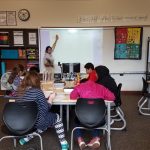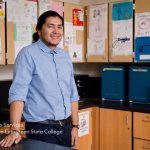
10 Years at IslandWood: Aysha Kloub
In August, TAF’s Fellows will return to the Martinez Fellowship’s annual three-day summer retreat where teachers of color receive professional development, community support, and participate in invigorating sessions. For the last 10 years, the retreat has been held at IslandWood, an environmental education center on Brainbridge Island, WA, and has become a tradition that our Fellows to look forward to.
To celebrate, we’re highlighting one Fellow from each of Martinez Fellowship’s ten cohorts.
Meet Aysha Kloub of Cohort 8, an English Language Learner (ELL) teacher at Larchmont Elementary of Tacoma Public Schools.
TAF: What was one win or winning moment this past school year?
Aysha: Witnessing students develop a love of reading and get excited about new books is one of the greatest moments of my school year. I love watching as students who are reluctant readers develop their confidence and eagerly tackle reading challenges. My favorite moments are when students in my reading groups run up to me to ask “when is reading group?!” or show me the new books they just checked out from the school library.
TAF: Why did you want to become a teacher, and why are you still a teacher?
Aysha: One of the biggest reasons I became a teacher is because I want students of color, particularly immigrant and refugee students, like myself, to see connections between their lived experiences and those of their educators. I love coming to work everyday and listening to my students share about themselves, their families, and cultures. They get so excited when I talk about my culture too or when they hear me speaking in Arabic or Spanish.
My family is Muslim and moved to the US from the Middle East right before September 11, 2001. At that time, my siblings and I attended school in a predominantly white area where we experienced ongoing harassment and intimidation. My brother, Mohammed who was a first grader at the time, asked my parents to change his name because he was picked on so often. At that time, very few of our teachers tried or knew how to have meaningful conversations about the cultural and political moment we were living in.
Issues of Xenophobia and racism were brushed aside and it took a great toll on our entire family. My parents were dismissed by administrators and internalized so much shame from those experiences. Looking back at my first few years of schooling in the US, I still wish that teachers had intervened when issues of discrimination surfaced. I yearned for a classroom in which I could be my whole self without shame and isolation. Whether students are coming in with different learning abilities, lived experiences, or languages, they deserve to learn in classrooms that affirm those differences. These experiences played a huge role in my decision to become a teacher and support families in navigating the education system.
TAF: What do you with the world knew about being a teacher of color?
Aysha: I want the world to know how many different and important roles teachers of color play in their schools and communities. We often exist as a bridge between the Euro-centric education system and our culturally diverse communities. We see the complexity of our students and their families because many of us can identify with them in one way or another. Our presence in schools is not only important for students of color but for white
students as well who need to see and learn about differences in meaningful ways.
What is missing from public education today?
Aysha: We need more honest and critical conversations about the impact of inequity, particularly economic, racial, and gender inequity, on our students, their families, and teachers. Systemic inequity is embedded in every institution in this country from housing to policing, which all impact our families.
We need greater supports for students and families impacted by inequity and trauma, such as culturally reflective mental health services and tools for teachers to respond in more individualized ways to student trauma. Teachers also need more supports in caring for their mental health and well-being.
Another element missing from public education is participatory decision-making opportunities for families in school districts. Families need to have a say in who is chosen to lead and teach in their schools and how resources are allocated in their schools. Many parents I’ve talked to would like to get more involved in decision-making and have great ideas to contribute, but don’t know who to voice their ideas to or if they’ll be heard.
“Teaching can be challenging in so many ways, but I know if I can be that one teacher in a kid’s life, then it’s not for nothing.”
TAF’s Martinez Fellowship Program recruits and retains teachers of color in Washington State. In the last year its 151 Fellows impact over 14,000 students by providing representation and creating equitable academic environments.
By 2038, TAF plans to add over 2,400 teachers of color to the fellowship. Learn more about the Martinez Fellowship.





